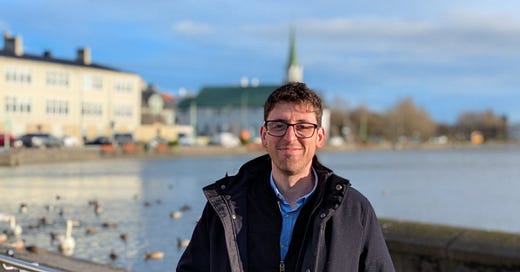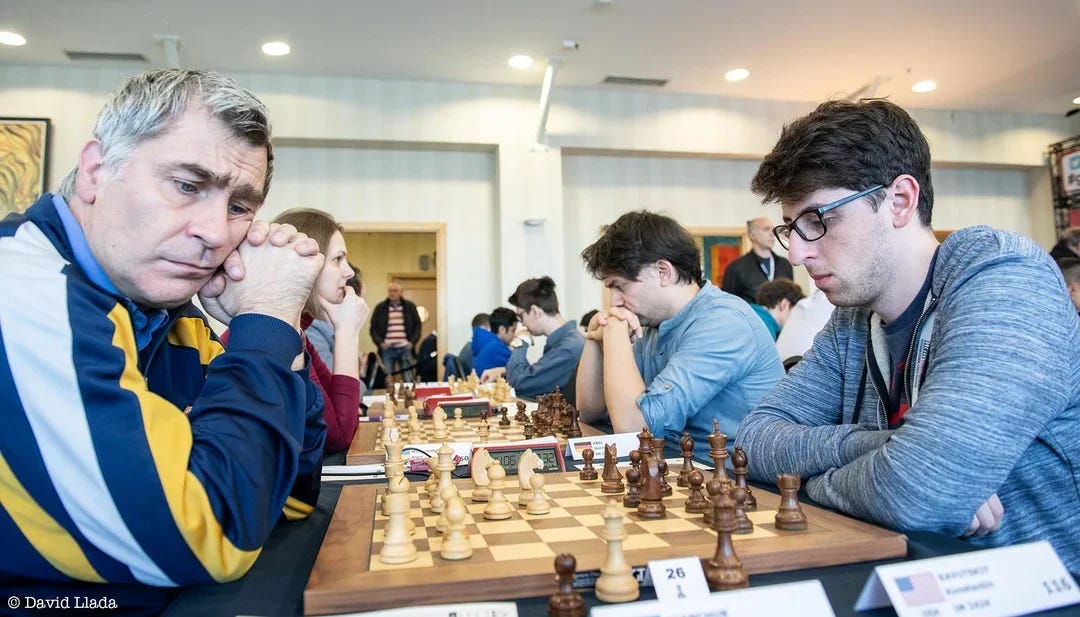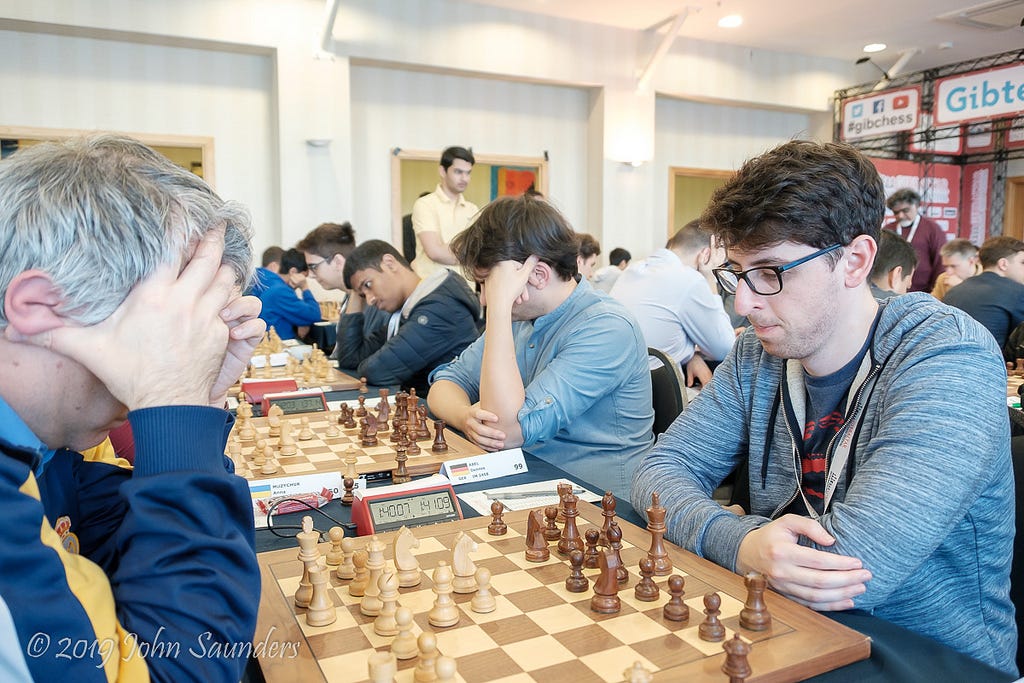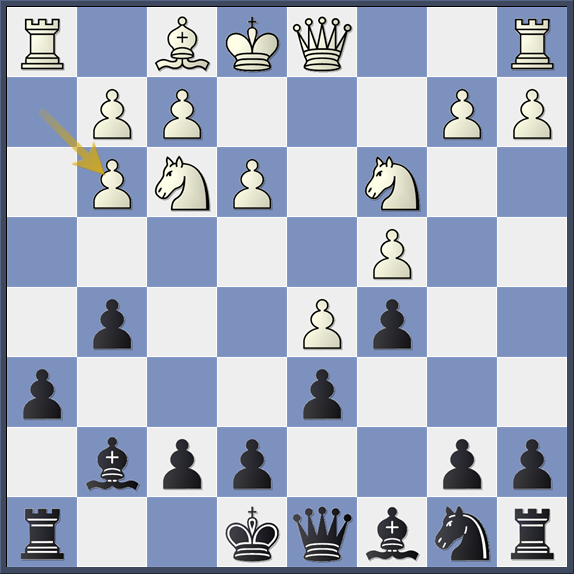The life of a traveling chess player is quite something. You wake up in Saint Louis. You wake up in Reykjavik. Transfer at Copenhagen. Wake up in Karlsruhe. Prep, tournament, analysis, rest. Lose a game, win a game. This is your life, and it’s ending one move at a time. If you wake up at a different time and in a different place, could you wake up as a different chess player?
About 11 days ago, I embarked on my latest chess Eurotrip, with the following schedule planned:
2025 Reykjavik Open (April 8 - 15)
2025 Grenke Open (April 17 - 21)
Hamburg - Chessbase HQ (April 22 - May 2)
Killer Chess Training Camp & Open (May 3 - 16)
1st Vigevano International (May 31 - June 2)
My goal for the trip? Play and learn as much chess as possible. Meet players across the pond. To try and taste the path to grandmaster. My last event was the 2024 Saint Louis Masters, held in December of last year.
I arrived in Reykjavik at 9 am on April 7, a day before the tournament started. This was my fourth time playing Iceland’s premier open, having participated in the 2016, 2017, and 2018 editions of the event. With five hours to kill before hotel check-in, fully jet-lagged and running on no sleep, I walked to a nearby cafe and sat down for breakfast. A short while later, I stepped outside to catch some fresh air, only to spot a familiar face walking down the street — Vasyl Ivanchuk.
Ivanchuk has long been a chess hero of mine. Mainly for his creative style, willingness to play any kind of position, and his uncanny ability to defeat literally any other player on any given day. If I had to pick a favorite game, it would be his win over Jobava from the 2010 Khanty-Mansiysk Olympiad, where Ukraine took gold (with Ivanchuk winning the individual gold on the top board as well). I was probably around 2200 at the time of the game and remember feeling utterly baffled by it.
My introvert instincts told me to not bother the legend, but then I remembered a recent tweet of David Llada, which mentioned Ivanchuk’s willingness to talk and analyze chess with anyone, regardless of level. We also played a couple years ago, in the 2019 Gibraltar Open, and I wondered if he’d remember the game. So in a split-second decision I swallowed my fear and approached him.
I said hello, and mentioned (in my remedial Russian) that we had previously played in Gibraltar. He tried to place me, and then asked for my last name. Upon hearing it, he immediately recalled not just the opening (9.Be2 in a main-line Taimanov), but even some of the prep (!) he had in mind for the game.

We discussed the game a bit blindfold, which already blew my mind. Of course I remembered the game since it was such a memorable experience, to play one of the greats. But I didn’t think Ivanchuk would, given how much chess he plays and how many different players he’s faced. He then offered to retrieve his set and take a look at it OTB. Obviously I said yes, and invited him to the cafe I was sitting at.
We then analyzed chess, over the board, for the next 11 hours. We started with our game in the Taimanov, after which I mentioned that I had since started playing the Sveshnikov and even wanted to include the Najdorf in my repertoire. So he then started showing me all kinds of lines and games in the Najdorf. His experience with 6.Bg5. 6.Be3. 6.Be2. 6.f4. 6.a4. Other tries for White. Games and analysis he recalled from the late 80s and 90s. My jet-lag was replaced with adrenaline. 3.5 hours later, we took a quick break so that I could check in to my hotel and then met back up for lunch. After lunch, we spent another 7 hours, just analyzing. Mostly openings, but he even offered to look at some of my recent games. At some point we even switched over to looking at topical lines in the King’s Indian. To say it was incredible would be selling it short. It was easily a top-3 chess experience of my life.
Once we wrapped around 10 pm, he suggested we meet back up the next morning for a bit more analysis. I said “yes, I would like that very much.” We then did another hour the following day (April 8), and then three more hours before the start of Round 1 on April 9. In fact we barely looked at our first round opponents, instead just continuing to analyze lines in the Sicilian. Despite doing very little computer prep, my inspired self decided to play the Najdorf against my Round 1 opponent, a very decent club player from Germany. I won a nice game and Ivanchuk even joined our post-mortem, which lasted over an hour.
After that we met up a few more times, occasionally for dinner, where we mainly discussed our games, blindfold. Sometimes he would be silent for a few minutes, when I would think that he’s grown tired of my patzer IM brain. But then he’d share a new variation or idea he was simply mulling over in his mind. My visualization skills were certainly stretched.
By the end of that first day my mindset had already shifted completely for the tournament, and hopefully for good. Going into Reykjavik of course I wanted to perform well, gain rating, flirt with the possibility of a GM norm. But now I realized that I simply haven’t worked hard enough to earn any kind of result. Perhaps ever. For me to spend 11 hours on chess, analyzing, without the computer, was just something I’d never done. But for someone like Ivanchuk, it was typical. He’s probably had countless 12-hour days, which is likely what it takes to get anywhere even close to that level.
When most players say “this position needs to be checked”, they mean by Stockfish. When Ivanchuk says it (and he would say it frequently), he would mean he needs to check the position. With his own eyes. To come to his own conclusions. I’ve been incredibly fortunate with my position in the chess world to interact with some of the greatest players out there, but this was truly another level. No wonder the guy remembers his games from 1989!
It’s a strange feeling to realize you’ve been approaching chess wrong your entire professional life. It was both depressing and liberating at the same time. Putting Ivanchuk aside, how could I expect to compete with grandmasters when I have a fraction of the talent and an even smaller fraction of their work ethic? So I gave up on any hopes for the tournament, and in fact for this trip, and came up with a new goal: play and analyze as much chess as possible. Just try to discover more about the game. I figured if I have any chance of improving, at my age and current place in life, I would have to get serious, for once. Because that’s what it takes to reach a new level.
My tournament went reasonably. I’m happy to say I started playing without fear. Choosing lines that I wanted to get more experience in, regardless of the result. The goal was to play interesting chess games. And I did as many post-mortems as I could. Then in the evenings I would analyze games with my friend Zach (thechessnerd) and two other masters from the tournament. No engines, just analysis. It was a blast.
I can’t say I ate super well in Reykjavik, my stomach wasn’t having it. But I did develop a new hunger for chess analysis. And I tried to share the gospel with as many others as I could, as I’m doing now. It was no longer about my results or my rating. I just wanted to learn more about this impossibly deep game. And I started thinking that’s maybe why Ivanchuk is willing to analyze with anyone, even players rated 1000 points lower than him — because there are secrets to uncover in every position, regardless of who it came from.
After winning my first game, I was paired with one of the top seeds of the event, GM Lu Shanglei of China. My usual MO would be to play 1.d4 or 1.Nf3, looking for a calm positional struggle where I could try to provoke my higher-rated opponent into taking excessive risk. Naw, I played into an Open Sicilian and proudly got destroyed. Then I learned a ton in the post-mortem from my opponent, and later got to discuss the game blindfold with Chucky. Cloud 9.
I won Round 3 on the Black side of a Kalashnikov, playing down, and then faced an underrated junior from India in Round 4. Working very hard at the board, I managed to convert a long and technical endgame with the bishop pair. Afterwards Ivanchuk said one word — “atleechna” 🥹. With 3.0/4, I then played up again, this time with Black against GM Denis Kadric, representing Montenegro.
Unfortunately for this game I went back to my old ways—relying heavily on computer prep—which landed me in a very difficult position, albeit with tons of time on the clock and knowledge of the evaluation (it was equal…how useful!). Once I started playing on my own, I immediately went wrong and promptly got mated. A bad game.
In Round 6 I bounced back, winning a fairly straightforward endgame out of the opening. Then in Round 7 I got to execute an opening idea I had been waiting to play for the last two years:
In the above position, I played 10…Bxc3+ 11.bxc3 Kd7!!, leading to a Nimzo-style position where White is left with a bad structure and no clear plan to improve:

This has been seen before, but I was very happy to get a chance to play it myself, and won a smooth positional game. Honestly one of my best. In Round 8, I faced the strong GM Yahli Sokolovsky of Israel. Still feeling inspired, I opted for the 6.Bg5 Najdorf, a variation that six months ago I would have never dared to touch from either side. The game was sharp, fun, and even saw me go into an endgame with decent winning chances. Unfortunately I let my opponent off the hook, walking into a repetition which I only realized how to avoid a move too late.
With 5.5/8, I went into the final game confident as ever against IM Jon Viktor Gunnarsson, a strong Icelandic player who was very close to GM level in his younger days. After again boldly playing the Najdorf, my first time against a truly experienced player, I got a good position out of the opening, but then made some bad decisions and ended up losing a difficult endgame. It was a painful loss, as it ended my tournament on a bitter note, but of course it was also a valuable lesson.
Hence I finished Reykjavik with 5.5/9, expected to gain 2 rating points after all is said and done. The result is fine, but the experience was nothing less than stellar. For the first time in a long time, I felt like I was actually playing for keeps, rather than to slowly trickle up the rating ladder.
For anyone interested, I did an individual recap of all my games for my personal YouTube channel. I didn’t check the engine apart from a few opening positions, just sharing my unfiltered thoughts from the games and post-mortem analysis.
To be fair, there was another reason I started to play boldly — recently at the Dojo we filmed the first episode in a new series, where we (myself, GM Jesse Kraai, and special guest GM Sam Shankland) ranked the best games ever of my co-sensei, IM David Pruess. The video is yet to be released on YouTube, but I’m super pumped about it. David never reached 2500, but during his peak absolutely crushed the open circuit, earning three grandmaster norms and defeating many strong 2600s along the way. Including a win over Hikaru Nakamura from 2008, then rated just above 2700. These games were simply astounding. I’ve beaten some strong players myself, but not in David’s all-guns-blazing, no-holds-barred, maximalist style. I realized if I ever want to achieve similar results, I had to start going for it in every game, not fearing brutal losses.
So that’s where I’m at now. I feel like I have a whole new lease on chess, and I can’t wait to spread it to the masses—who knows, I might be an anti-engine convert. It’s clearly all about the work you do yourself, over-the-board. It’s actually so logical: if you’re trying to improve your analytical capabilities during tournaments, why wouldn’t you practice your skills as much as possible outside of competition?
I’m writing this just a few hours before the start of the Grenke Open, one of the largest and strongest opens in the world. I don’t know how I’m going to do. I still haven’t put enough work in to expect any kind of decent result, not even close! But I’m very grateful for the chance to play and improve over the next several weeks.
Running side-by-side with Grenke is the 2025 Freestyle Open, the first of its kind featuring Carlsen, Caruana, Nepomniachtchi, Erigaisi, and many of the absolute strongest players in the world. Personally I would love to switch over to 960, truly with pleasure, but at the moment I still have ambitions to fight for GM norms, and my chances of a prize in the Freestyle Open are close to 0.
That said, as a quick aside I do believe Fischer Random is the future. I could easily see in 100 years everyone playing Freestyle, looking back on these primitive times in which humans only studied one position, out of a possible 960! If I had to make a prediction, I’d say the original starting position will one day be used for instructional purposes, i.e. ‘training wheels’ to teach new players how to develop and fight logically for the center. Meanwhile Freestyle will be considered the “real chess”, where you cannot simply memorize all of the moves. It seems inevitable.
Anyways, I’ve gotta go get ready now. As always, thanks for reading 🙂
-Kostya







Unreal, what an amazing experience! Thanks for sharing it Kostya and good luck in Grenke.
Awesome post and what an opportunity - over 11 hours with Ivanchuk! Love your perspective and attitude. Really like that you are just going for it looking for interesting games - and so far that seems to be working in your favor too!